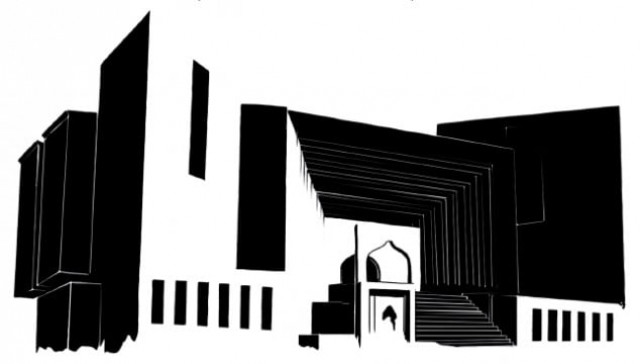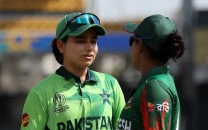Service tenures: SC takes up another potentially bruising case
Two judges in Kayani extension case not reappointed by Presidency.

Despite comments to the contrary, the spectre of clashes between institutions refuses to go away.
The latest of these spectres comes in the form of the delay in the reappointment of two judges as per the Judicial Commission on the Appointment of Judges’ recommendations– which could have stirred a hornet’s nest.
The delay, which has been taken up by the Supreme Court for hearing today (Tuesday), has a three-way clash and twofold importance: One, it pertains to the contentious balance between the executive and judiciary when it comes to the appointment of judges; two, the judges whose reappointment expires due to the delay are on the bench of a potentially explosive case – pertaining to the validity of the army chief’s extension.
The players at the heart of it all are the three big fish: The judiciary, whose recommendations stand ignored, the Presidency, which is not implementing the recommendations, and the army, which, though not directly involved, is certainly a stakeholder in this latest situation.
The issue
As the tenure of two Islamabad High Court (IHC) judges, who were scheduled to hear an important petition challenging the tenure extension of the army chief, expires today (Tuesday), the Supreme Court has taken up a petition seeking implementation of a judicial commission’s recommendations to enhance their service tenures — recommendations that the president’s office has so far ignored.
The chief justice constituted a four-member bench to hear a petition filed by Advocate Nadeem Ahmed in which he prayed to the court to direct the federation to immediately implement the recommendations of the judicial commission, which were also approved by the parliamentary committee.
The apex court bench hearing the petition on Tuesday is headed by Justice Khilji Arif Hussain and will comprise Justice Asif Saeed Khosa, Justice Ejaz Afzal Khan and Justice Ijaz Ahmed Chaudhry.
A judicial commission, back on on November 5, had recommended confirmation in the service of Justice Shaukat Aziz Siddiqui and a six-month extension in service of Justice Noorul Haq Qureshi. Both these judges are on a bench which, on November 22, is due to hear a petition against the government’s decision to give a three-year extension to incumbent Chief of Army Staff Gen Ashfaq Parvez Kayani.
The fate of this petition hangs in the balance if the government does not issue notifications regarding these judges’ service appointments.
The petitioner, through his counsel Akram Sheikh, also requested the court to issue directions that these judges be allowed to continue functioning till issuance of the notifications extending their service tenures.
Both Justice Siddiqui and Justice Qureshi took oath on November 21, 2011, as additional judges for one year.
Other recommendations
The judicial commission had also recommended that IHC Chief Justice Iqbal Hameedur Rehman be elevated as a Supreme Court judge and Justice Anwar Khan Kasi replace him as the new chief justice of the IHC.
However, the law ministry had sent a summary to the Presidency rejecting these recommendations and claimed that Justice Riaz Ahmed of the IHC was senior to Justice Kasi and hence he should be appointed as the new chief justice of the IHC.
Another crisis?
Legal experts believe that the situation might lead to another judicial crisis.
According to the law ministry’s summary sent to the Presidency, Justice Riaz and Justice Kasi though took oath the same day but Justice Riaz was senior by age.
Law Ministry Secretary Yasmin Abbasey told The Express Tribune that it was a normal practice that if a judge was not confirmed, he cannot continue services after the expiry of his tenure. She added that if the president does not sign the summary of Justice Siddiqui, he will no longer be a judge after November 20 and Justice Anwar Kasi will not able to assume charge as the chief justice of the IHC.
Responding to a question, she said that judges will have to wait for the completion of the legal process.
Hamid Khan, a prominent jurist, said that the 18th Amendment made the situation difficult and now the judiciary has little say in the appointments of judges. “If the president will not sign the judges’ appointment summaries, it will lead to a judicial crisis,” Khan remarked.
Published in The Express Tribune, November 20th, 2012.


















COMMENTS
Comments are moderated and generally will be posted if they are on-topic and not abusive.
For more information, please see our Comments FAQ